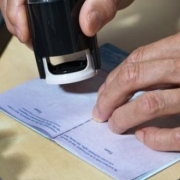WELCOME CHANGES TO IMMIGRATION PERMISSION FOR FAMILY MEMBERS OF CRITICAL SKILLS EMPLOYMENT PERMIT HOLDERS
The purpose of the Critical Skills Employment Permit Scheme is to attract highly skilled people to Ireland in key areas where skills shortages have been identified, mainly in the IT Sector. The Irish Naturalisation and Immigration Service (INIS) have recently announced an update on revised immigration arrangements for family members, spouses and partners of the holders of Critical Skills Employment Permits (CSEP).
The previous immigration requirement was that family members, spouses and partners of Critical Skills Employment Permits obtain their own Dependant /Partner/ Spouse Employment Permit from the Department of Business, Enterprise and Innovation (DBEI). Although more favourable conditions applied to the grant of these employment permits, this still amounted to an obstacle to access to the labour market and often delayed or hindered a person’s ability to work in the State.
From 6th March 2019, the INIS will now grant eligible spouses and de facto partners of CSEP holders’ permission to reside in the State on Stamp 1G Conditions, without the need to obtain a work permit from DBEI.
This change will affect the spouses and partners of non- EEA national CSEP holders in terms of their permissions in the State and their access to the labour market. In addition, the Policy change also applies to the partners and spouses of Researchers in the State on Hosting Agreements.
This policy change means that partners and spouses of CSEP holders no longer need to apply for and hold their own employment permit in order to work in the State. They will be eligible to work in the State on the basis of their own Stamp 1G permission.
The new procedure allows spouses or partners of CSEP holders currently resident in the State, to attend the INIS registration office at Burgh Quay. They will be issued a new Irish Residence Permit (IRP) on Stamp 1G. This will allow the registered person to access the labour market without acquiring a work permit.
There are no charges for those that present a valid IRP however if the current IRP is due for renewal, the normal registration of €300 will apply. If you wish to register under this new policy and you live outside of Dublin, you must attend your local Garda Registration Office.
In addition to this change in policy, from April 1st of 2019, INIS have also confirmed that there will be a new pre clearance procedure in place for non- EEA de facto partners and spouses of CSEP holders. Both visa and non-visa required nationals will now be required to seek permission to reside in the State as spouse or partner of a CSEP holder before arriving in the State. This new procedure is intended to reduce processing times and provide clarity with the new Stamp 1G conditions. The INIS have previously indicated their intention to operate such a pre clearance procedure in respect of many other family reunification applications from non-visa required persons. It will be interesting to see if this pre clearance procedure in respect of partners and spouses of CSEP holders is rolled out to other categories of family reunification.
Ultimately this new policy is intended to provide clearer conditions and more accessibility to the labour market for spouses and partners of CSEP holders. While there is now a necessity for non-EEA spouses and partners to go through a pre clearance procedure before entering the State, this has been introduced with the intention of a more streamlined application and registration process overall in respect of CSEP holder’s family members.
This change in policy is to be welcomed, it is our view that any restrictions on a person’s right to work and access the labour market should be removed from the Irish Immigration system. The Reform Stamp 3 campaign should be congratulated for their work in campaigning for this change.
Our office is currently working on many applications for change in immigration permission from Stamp 3 to Stamp 4 to allow our clients the right to work and earn a livelihood.



